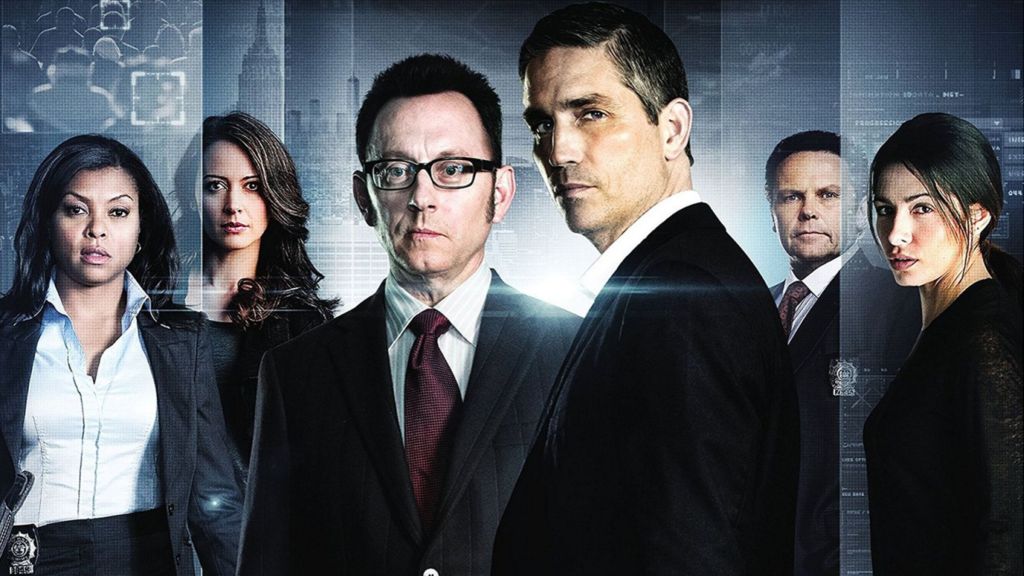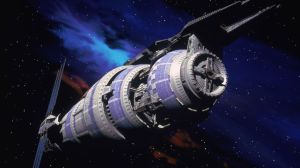Maintaining quality over a single season of television is a difficult feat, but sustaining that excellence across a multi-year run is a rare achievement in storytelling. This is especially true for science fiction, a genre that often builds intricate mythologies and sprawling narratives that can easily collapse under their own weight. For every brilliant sci-fi story debut, there are countless examples of shows that started strong only to lose their way, getting bogged down by convoluted plot twists, unresolved mysteries, or the simple creative fatigue that comes from years of production. Furthermore, sci-fi fans are often betrayed by a final season that fails to deliver a satisfying conclusion. This is what makes a truly consistent sci-fi series such a monumental accomplishment.
Videos by ComicBook.com
Some sci-fi shows demonstrate a clear vision from the very first episode and a commitment to seeing that vision through to a logical and emotionally resonant end. They respect their audience by ensuring that character arcs feel earned, that major plot points are paid off, and that the final moments provide a genuine sense of closure. These gems reward the time viewers invest in them, offering a complete and fulfilling journey that holds up from beginning to end, cementing their place as the gold standard of the genre.
7) Counterpart

Counterpart is a tightly plotted sci-fi espionage thriller featuring one of the best performances in J.K. Simmons’ brilliant career. The series centers on Howard Silk (Simmons), a low-level bureaucrat working for a secretive UN agency in Berlin who discovers that his organization is guarding a gateway to a parallel Earth. This alternate reality diverged from our own decades ago during the Cold War, creating a world that is subtly and dangerously different. Howard’s life is thrown into chaos when his ruthless counterpart from the other side crosses over on a mission.
Counterpart excels in its tone and narrative efficiency, blending the paranoia of a classic spy novel with a high-concept sci-fi premise. Over its two well-paced seasons, the show never wastes a single moment, building a world of incredible depth while telling a self-contained and deeply personal story about identity, choice, and consequence. Plus, it avoids the common pitfalls of a convoluted mythology by keeping the focus squarely on its characters, led by Simmons’ strong dual performance. As a result, Counterpart tells its complete story and ends precisely when it should, making it an example of a show that knew its beginning, middle, and end from the start.
6) Fringe

Fringe began as a high-concept monster-of-the-week procedural and quickly evolved into one of the most inventive and emotionally resonant science fiction sagas of its time. The show follows an unlikely trio of FBI agent Olivia Dunham (Anna Torv), the brilliant but fractured scientist Walter Bishop (John Noble), and his estranged son Peter Bishop (Joshua Jackson). Together, they form the Fringe Division, a team tasked with investigating a series of bizarre and terrifying events that seem to defy the laws of physics.
A key strength of Fringe was its ability to transition from episodic mysteries into a deeply serialized story about a war between parallel universes. This evolution felt natural, with early cases laying the groundwork for a rich and complex mythology that never became too convoluted. In addition, throughout its five-season run, the show never lost sight of its emotional core, grounding its most outlandish sci-fi concepts in the powerful found-family dynamic of its three leads. Even its ambitious time-jumping final season, which took a significant narrative risk, maintained the show’s thematic integrity and brought Fringe‘s story to a heartbreaking and satisfying conclusion.
5) Person of Interest

At first glance, Person of Interest appeared to be a standard CBS crime procedural, but it grew into something far more ambitious. The show follows John Reese (Jim Caviezel), a presumed-dead former CIA agent who is recruited by the reclusive billionaire Harold Finch (Michael Emerson). Using a god-like surveillance AI known as “The Machine,” which can predict violent crimes, the two work outside the law to save ordinary people. This case-of-the-week format laid the foundation for a much grander and more complex story.
Person of Interest‘s effectiveness lies in its patient and deliberate evolution into a hard sci-fi epic about a secret war between two artificial gods. This transition was well-executed, as the stakes were raised each season until the fate of humanity itself was on the line. Thanks to that, Person of Interest maintained its thrilling action and compelling character work while exploring complex themes of artificial intelligence, free will, and the ethics of surveillance. It managed this balancing act for five seasons, culminating in a series finale that is widely regarded as one of the most effective in sci-fi television history.
4) 12 Monkeys

Syfy’s 12 Monkeys surpassed its beloved source material, succeeding in the monumental challenge of adapting a mind-bending film into a multi-season series. The show follows James Cole (Aaron Stanford), a scavenger from a plague-ravaged future who is sent back in time to prevent the release of the virus that destroyed the world. His mission leads him to Dr. Cassandra Railly (Amanda Schull), a brilliant virologist in the present day who becomes his most important ally in the fight to save the timeline.
Many time travel narratives collapse under paradoxes, but 12 Monkeys distinguished itself with an intricate and carefully planned plot. The writers had a clear roadmap for the entire four-season story, allowing them to weave a complex web of cause and effect that was both intellectually stimulating and emotionally coherent. Even better, the show never wavered in its focus, successfully balancing its high-stakes plot with the powerful love story at its center. Its ability to tie up every single loose thread and deliver a finale that was both surprising and inevitable makes 12 Monkeys a strong example of serialized sci-fi storytelling.
3) Babylon 5

Long before the era of prestige television, Babylon 5 set the blueprint for long-form, serialized science fiction. Creator J. Michael Straczynski famously conceived the series as a “novel for television,” with a pre-planned five-year arc that would tell a complete story with a definitive beginning, middle, and end. Set on a massive space station designed to be a neutral ground for alien diplomacy, the show follows the station’s command staff, led by Commander Jeffrey Sinclair (Michael O’Hare) and later Captain John Sheridan (Bruce Boxleitner), as they navigate a galaxy on the brink of war.
The consistency of Babylon 5 is well-known among fans. Major plot points, character betrayals, and galactic conflicts were seeded years in advance, rewarding viewers who paid close attention. Plus, unlike many of its contemporaries, the show was not afraid to let its characters grow and change, with political alliances shifting and personal philosophies evolving over time. It successfully balanced its epic space opera plot with deeply personal stories, exploring complex themes of war, religion, and fascism with a maturity that was years ahead of its time. Its ability to execute its ambitious five-year plan remains a significant achievement in television history.
2) The Expanse

Hailed as an intelligent and realistic science fiction series, The Expanse is a notable achievement in world-building and narrative consistency. Set in a future where humanity has colonized the solar system, the show explores the rising tensions between a powerful Earth, a militaristic Mars, and the exploited inhabitants of the Asteroid Belt. The story kicks off when a cynical detective, Joe Miller (Thomas Jane), and the ragtag crew of an ice hauler called the Canterbury stumble upon a conspiracy that threatens to ignite a system-wide war.
Across six seasons and two different networks, The Expanse remained consistent. The show is celebrated for its commitment to scientific accuracy, its complex and morally grey characters, and its mature exploration of political power and tribalism. Every season builds upon the last, expanding the scope of the story from a solar system cold war into something far stranger and more cosmic. In the end, The Expanse tells a complete and satisfying saga, respecting its source material and its audience by delivering a tightly plotted and thematically rich narrative from its opening scene to its final frame.
1) The Leftovers

While its premise is rooted in a sci-fi mystery, The Leftovers is ultimately a profound exploration of grief, faith, and the human condition. The series begins three years after an event known as the “Sudden Departure,” in which two percent of the world’s population inexplicably vanished. The story centers on police chief Kevin Garvey (Justin Theroux) and a small community in upstate New York as they struggle to make sense of a world that has been fundamentally broken. In addition, the series focuses on Nora Durst (Carrie Coon), a woman who lost her entire family in the Departure, and is desperately searching for a way to move on.
The Leftovers is arguably one of the most consistent shows of the modern era because it understood that the “why” of the Departure was irrelevant. Instead, creators Damon Lindelof and Tom Perrotta focused entirely on the emotional fallout, using the central mystery as a catalyst for a deeply moving character study. Each of its three seasons is a well-constructed story, building upon the last while shifting in tone and location. Furthermore, the show had the courage to ask profound questions without providing easy answers, trusting its audience to find meaning in the ambiguity. Its finale is widely considered one of the strongest in television history, providing an intimate and emotionally truthful conclusion to the series.
Which other multi-season sci-fi show do you think was perfect from beginning to end?









